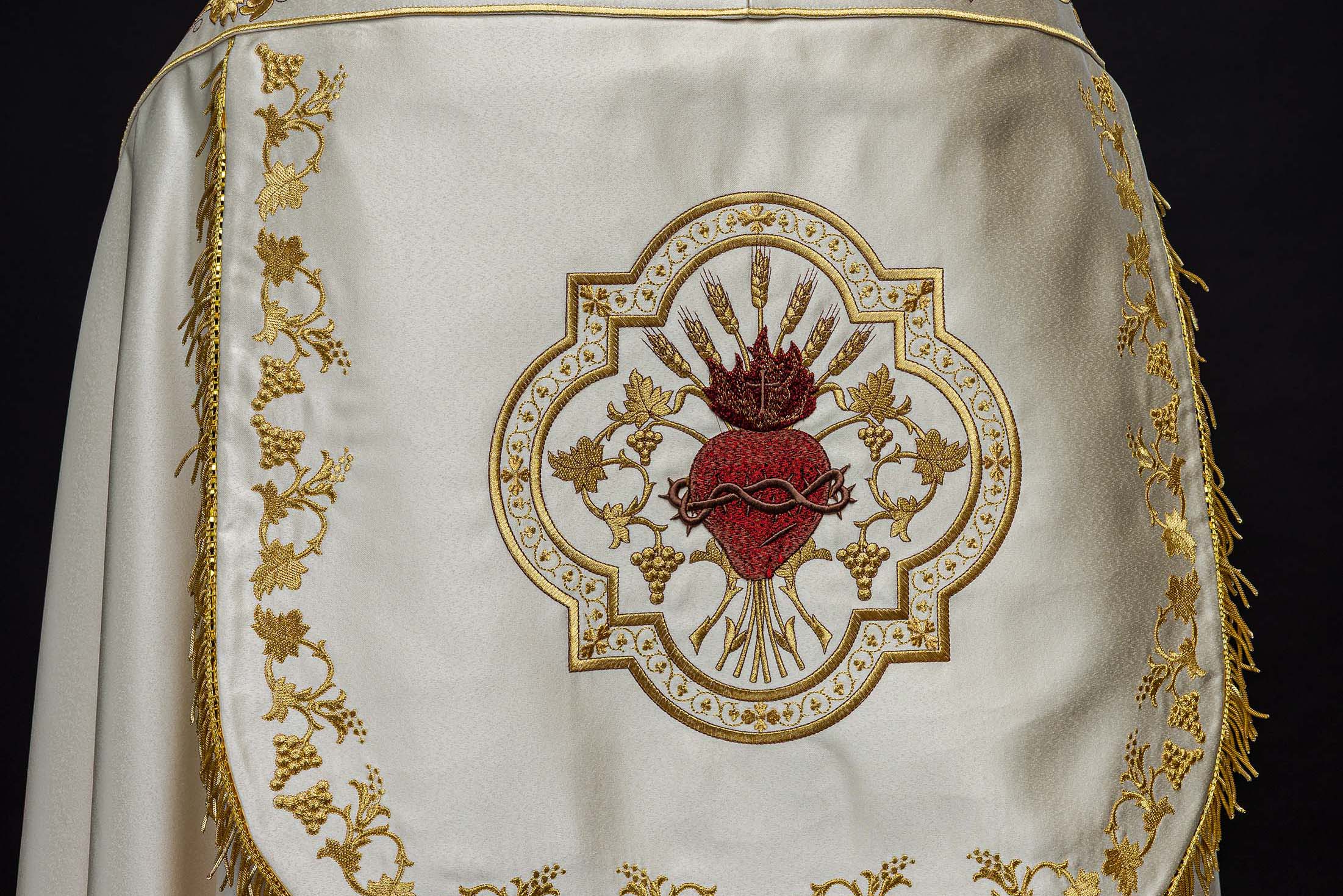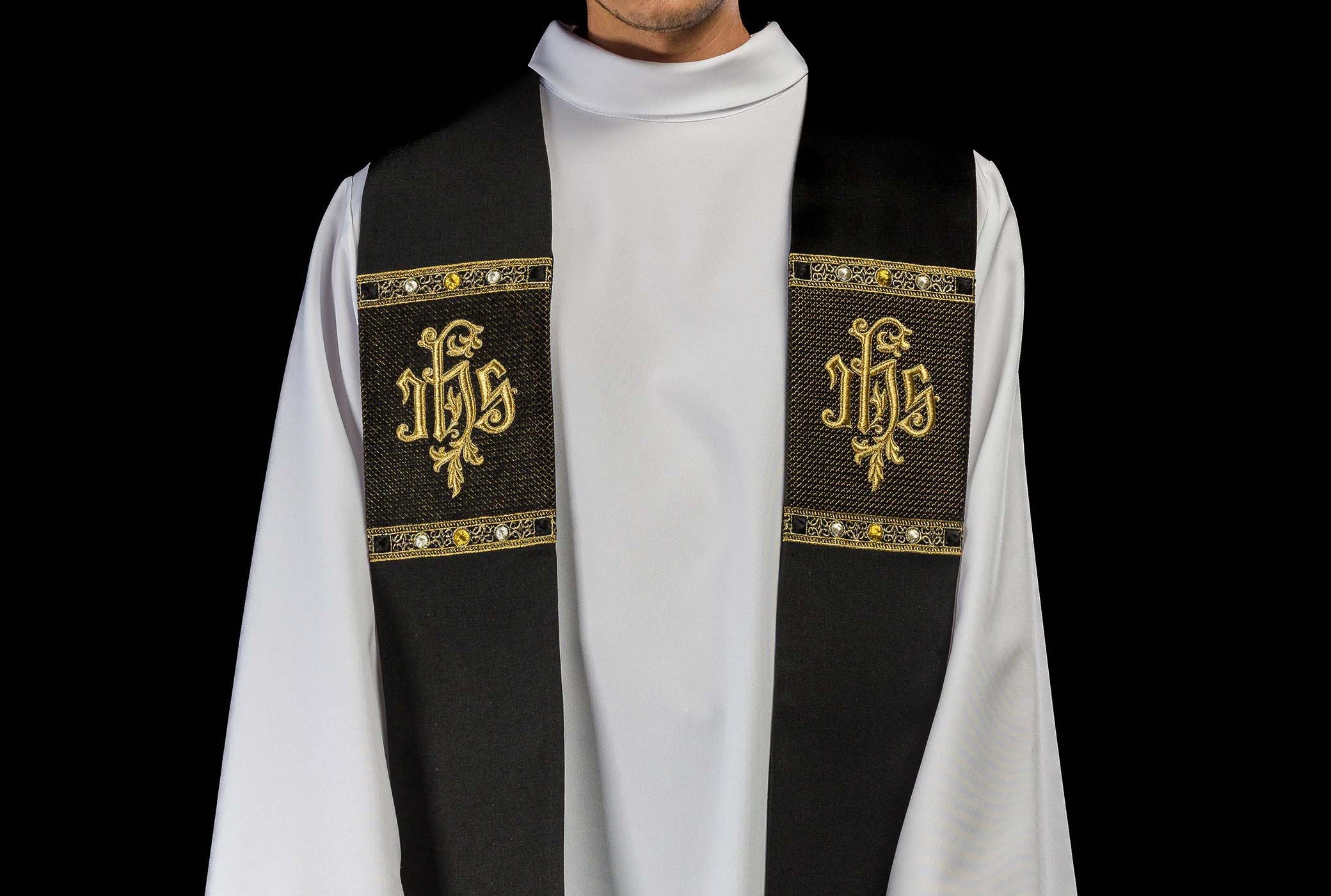
Prayers Before the Sermon: How to Prepare Spiritually?
Prayers Before Sermon – How to Prepare Spiritually?
Delivering a sermon is one of the most responsible tasks a clergyman faces. It is a direct encounter with the Word of God, which is meant to transform the hearts and minds of listeners. However, for the Word of God to effectively reach the faithful, the preacher himself must be properly prepared. A key element of this preparation is the spiritual dimension, and at the heart of spiritual preparation is prayer. So how should one pray before a sermon to reach the hearts of listeners and convey God's Word with power?
The Significance of a Preacher's Spiritual Preparation
The Holy Scripture repeatedly emphasizes the importance of a personal relationship with God for those who are to proclaim His Word. Fr. Piotr of Płock wrote in his treatise on homilies that a preacher should be a "living vessel of the Word of God." This means that the Word of God must first speak to the heart of the speaker himself, so that it can then pass through him to others.
Spiritual preparation is not merely a formality, but a vital necessity for a preacher. It allows for:
- Deeper understanding and experience of the Word of God that is to be preached.
- Opening oneself to the action of the Holy Spirit, who is the true inspiration and source of power in preaching.
- Grounding personal faith and conviction in the truth of the message being conveyed.
- Building an authentic relationship with listeners, based on truth and love.
- Avoiding the pitfalls of pride, superficiality, and spiritual emptiness in the ministry of the word.
Prayer – The Foundation of Preparation
Prayer is a conversation with God that allows one to establish and deepen a relationship. In the context of preparing for a sermon, prayer has specific goals:
- Asking for the light of the Holy Spirit to understand God's Word.
- Giving thanks for the gift of the Word and the opportunity to proclaim it.
- Asking for the grace of courage, clarity of mind, and strength of will during the delivery of the homily.
- Entrusting the hearts of listeners to God, that they may be open to receiving the message.
- Asking for freedom from one's own fears, doubts, and earthly concerns.
A Clergyman's Personal Prayers
Every priest has their own developed way of praying. However, there are certain universal elements that should be included in the spiritual preparation before a sermon.
Prayer Before Reading Scripture
Before beginning to consider the text of the Gospel or another passage of Scripture that will be the basis of the sermon, it is worth reciting a prayer asking for understanding and openness.
Example of a Prayer Before Reading Scripture
“Lord Jesus Christ, Son of God, through the Holy Spirit illuminate my mind and my heart, that I may deeply understand Your Word. Cleanse me from all earthly worries and make me able to receive this Word with humility and love, so that it may become for me and for my listeners a source of life and salvation. Amen.”
Prayer for Wisdom and Clarity of Message
Once the material for the sermon is prepared, prayer for clarity of mind and the ability to convey thoughts in an understandable and captivating way becomes crucial.
Example of a Prayer for Wisdom and Clarity of Message
“Almighty God, You are the source of all wisdom. I ask You, grant me clarity of mind, the ability to clearly express thoughts, and strength of voice, that I may proclaim Your truth with conviction. Let my words be a reflection of Your love and the Word of God, and not my own opinions or ambitions. Give me the courage to proclaim what is right, even if it is difficult. Amen.”
Prayer Entrusting Listeners
Particularly important is prayer for those to whom the word is directed. Listeners come with different experiences, problems, and needs.
Example of a Prayer Entrusting Listeners
“God, I now entrust to You all who will listen to my sermon. Open their hearts to receive Your Word. Remove any obstacles that might prevent them from believing and converting. Grant them the grace of understanding, comfort, and hope, which they so need. Let Your Word be a light for them on the paths of life. Amen.”
Prayer for Humility and Holiness
Pride is the greatest enemy of a preacher. Therefore, prayer for humility and striving for holiness is essential.
Example of a Prayer for Humility and Holiness
“God, my Lord, grant that I may always remember that I am only an instrument in Your hands. Free me from vanity, the desire to please people, and the desire to gain recognition. Let my sermons be a reflection of my personal journey with You, a journey of humility, obedience, and striving for holiness. Help me to constantly grow in love for You and for my neighbors. Amen.”
Communal and Liturgical Prayers
In addition to personal prayer, participation in communal prayer, which precedes the Liturgy of the Word, is extremely valuable.
- Prayer of the Faithful: A properly composed universal prayer can be an expression of concern for listeners and their needs.
- Liturgy of the Hours: Reciting the breviary, especially Lauds before the start of the day, prepares the mind and heart for God's presence.
- Advent Prayer Vigil: Especially in preparatory periods, such as Advent or Lent, communal prayer vigils can be extremely edifying.
Practical Tips for the Clergyman
In addition to prayer, it is worth remembering a few practical aspects that support spiritual preparation:
- Silence: Find time for silence and inner focus. In the hustle and bustle of everyday life, it is easy to lose contact with your inner self.
- Consideration of the Liturgical Context: Understanding the liturgical season, solemnity, or memorial of the day helps to give the sermon the proper context and depth.
- Fasting and Mortification: Although it is not always possible, voluntary mortification, especially fasting from certain pleasures, can strengthen spiritual discipline.
- Study of Scripture and Theology: Regularly deepening theological and biblical knowledge is the foundation of reliable preaching.
- Care for Liturgical Vestments: Although it may seem secondary, the aesthetics and quality of liturgical vestments, such as chasubles, stoles, and albs, also influence the atmosphere of the celebration. HAFTINA TEXTILE GROUP SP. Z O. O. offers a wide selection of beautiful and carefully made vestments that can help create a solemn character for the liturgy. Available at [https://haftinausa.com](https://haftinausa.com) products, from elegant chasubles to carefully finished chalice linens, are an expression of respect for the sacred ministry.
Most Common Mistakes in Spiritual Preparation
- Delayed Preparation: Leaving spiritual preparation to the last minute, when only the technical aspects of creating the sermon dominate.
- Lack of Personal Prayer: Focusing solely on the intellectual elaboration of the text, without spiritual immersion.
- Preaching Without Inner Conviction: When the preacher himself has not experienced what he wants to convey, his words are empty and ineffective.
- Pride and Excessive Self-Confidence: Considering oneself an expert who no longer needs God's help and inspiration.
- Ignoring the Needs of Listeners: Preaching general truths that do not relate to the specific problems and life situations of the faithful.
How to Choose the Right Liturgical Vestments to Support Spiritual Preparation?
While prayer is the heart of spiritual preparation, the surroundings and symbols also play a role. When choosing liturgical vestments, it is worth paying attention to their quality and symbolism.
Chasubles
The chasuble, as the most important liturgical vestment, should be an expression of respect for the mystery of the Mass being celebrated. The richness of the embroidery, the quality of the fabric, and the care of the workmanship all influence the solemnity of the atmosphere.
Examples
- Chasubles with rich embroidery depicting images of saints or Eucharistic symbols can remind one of the source of power and inspiration.
- Chasubles made of high-quality materials, such as silk or velvet, emphasize the solemn character of the liturgy.
Stoles
The stole, a symbol of priestly authority, should be elegant and consistent with the color scheme of the liturgical season.
Examples
- Stoles with an embroidered IHS symbol or other religious motifs are a visible sign of ministry.
- Carefully made, embroidered stoles, available in various designs and colors, can be a spiritual support for the priest.
Chalice Linen
The purificator, corporal, and pall, although often hidden, are essential elements of preparation for the Eucharist. Embroidered chalice linen sets emphasize the significance of the sacrament.
Examples
- Chalice linen sets with embroidery symbolizing the Blood of Christ (e.g., chalice, grapes) remind one of the central point of faith.
- Linen or cotton purificators, finished with embroidery, are practical and aesthetic.
Summary
Spiritual preparation before a sermon is a continuous process, the foundation of which is authentic, personal prayer. Through conversation with God, asking for the light of the Holy Spirit, thanksgiving, and entrusting oneself and listeners to Him, the priest can become a true witness of the Word. Attention to detail, such as the quality of liturgical vestments, can also support this process, helping to create an atmosphere conducive to spiritual experience. Let us remember that the sermon is a work of grace, and prayer is the key to opening it. If you are looking for high-quality liturgical vestments that will support spiritual preparation and emphasize the solemnity of the liturgy, we invite you to familiarize yourself with the offer at [https://haftinausa.com](https://haftinausa.com). Our assortment includes a wide selection of chasubles, stoles, albs, and chalice linen, made with passion and attention to detail.
Frequently Asked Questions (FAQ)
What are the most important prayers before a sermon for a priest?
The most important prayers before a sermon are those that focus on asking for the light of the Holy Spirit, understanding the Word of God, clarity of mind, courage in preaching, humility, and opening the hearts of listeners.
Should the prayer be long?
The length of the prayer is not as important as its sincerity and focus. It is better to recite a shorter, but deep and fervent prayer, than a long, but superficial one.
What biblical texts are helpful in prayer before a sermon?
Helpful may be passages of Scripture that speak of the sending of the prophets (e.g., Is 6:1-8), of the meaning of the Word of God (e.g., Jr 23:28-29), or of the power of the Holy Spirit (e.g., Acts 1:8
```




